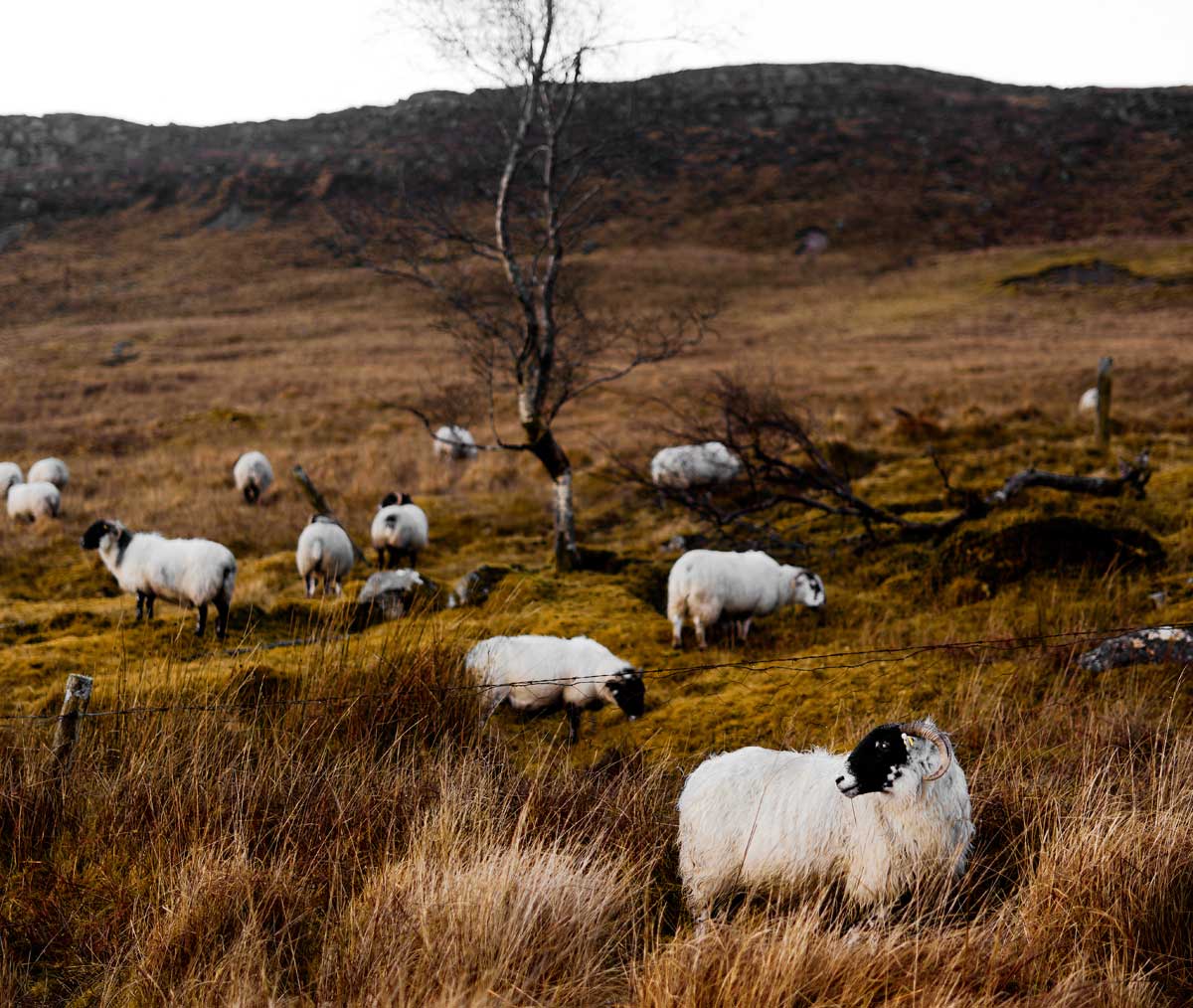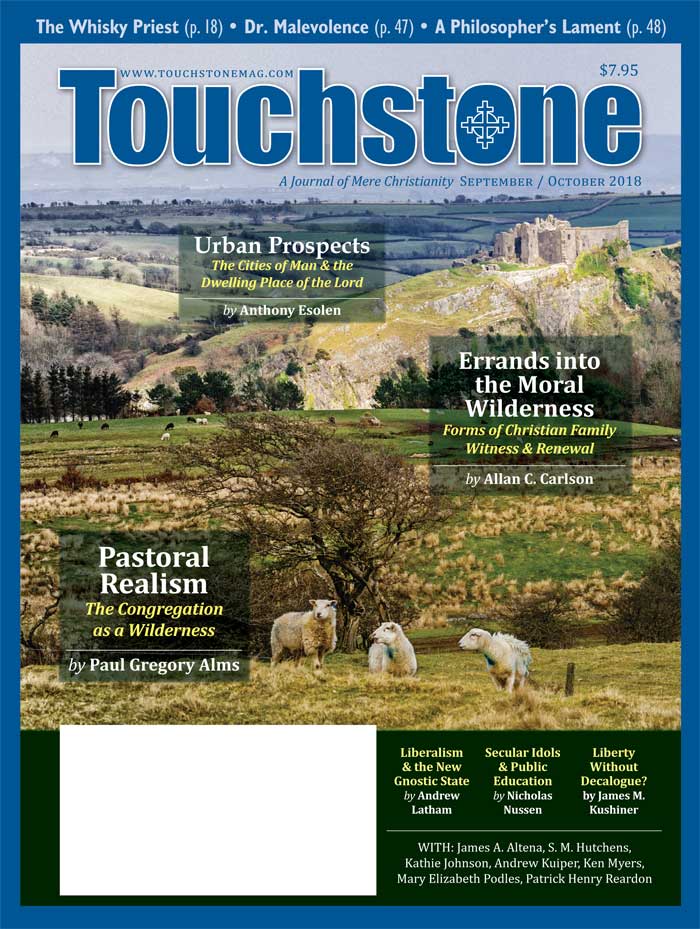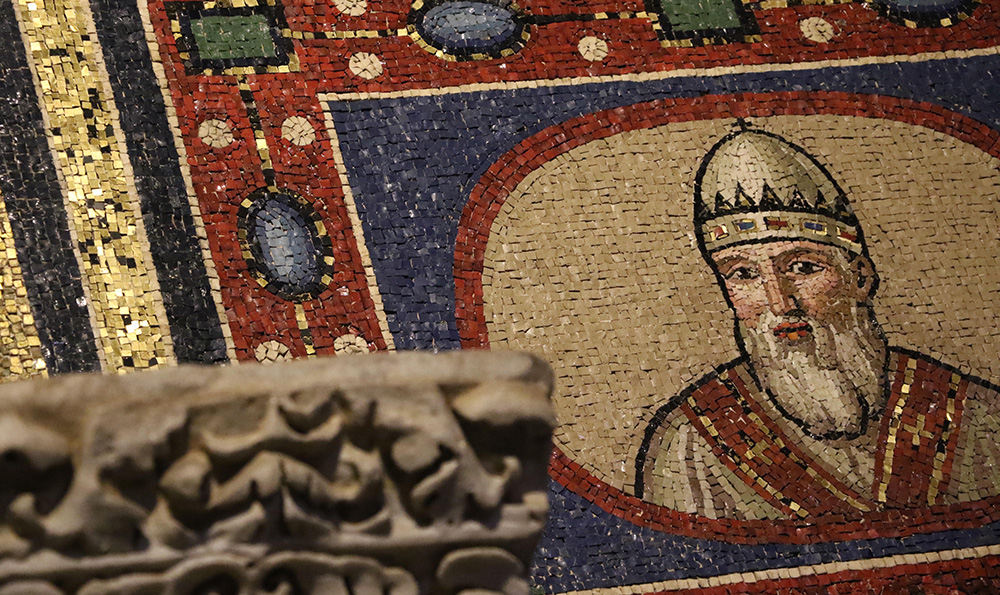Views
Pastoral Realism
Paul Gregory Alms on the Congregation as a Wilderness
There is a clean, dark slate of soil, freshly tilled. There are seeds newly pushed into that dirt. There is expectation. A garden. I enjoy gardens. I enjoy the planting and that initial joy of excitement in spring. One imagines the growth, the green, the vegetables that will result.
Yet to say I enjoy gardens is something of a falsehood. For inevitably, as the spring wears into summer, my enthusiasm fades. The soil that seemed so promising begins to harden with the high temperatures, and it cries out for water: actual watering and hard work. The seeds indeed sprout, but so do weeds, innumerable weeds, which require bending over and pulling and using tools and work to remove them. A few days of inattention and your garden is overrun with resilient, prolific weeds. By June or July, my garden has become a wilderness, and instead of getting up early to work patiently in it, I am off to the farmers' market, where tomatoes and melons and lettuce and berries lie in abundance. I do enjoy gardens—other people's gardens, the fruit of other people's toil.
When one becomes a pastor in a congregation, something like this occurs. You begin with an ideal of your congregation. Whether fresh from seminary or taking a new call, you imagine the neatly arranged pews like tidy rows of freshly dug earth. The local church you are entering appears in your mind like that new garden, perfectly tilled and waiting for your work to push it into fruitfulness. All you need do is plant the seeds, and then all sorts of exciting things will happen. The people will joyfully listen to the sermon. They will grasp the incredible gift and meaning of the forgiveness of Christ. The members of this garden will eagerly receive the sacrament and will understand and support the timeless significance of the liturgy. They will respond energetically and work happily to benefit the church and the community. There will be volunteers and outreach and Sunday school teachers, and the congregational singing will be wonderful. Offerings will increase and meetings will be productive.
Then you are installed. And soon the Garden of Eden you imagined begins to harden with drought, and the weeds sprout, and there is apathy and there is sin and there is division and there is the great lukewarmness that seems to be the defining mark of the church. Your garden begins to resemble a wilderness. The seeds have sprouted into a tangled mess with weeds towering over them, and you, the gardener, stand helplessly with your hands on your hips, confused and discouraged.
Where the People Are Found
I did a Bible search for the word "garden." It comes up 59 times. Of course, the word is mostly associated with the Garden of Eden, that place of perfection and beauty that God created for Adam and Eve. That garden was the setting for human growth and contentment, mapped out by a God who was present there with them. Adam and Eve were to keep the garden and enjoy its fruit. There was work, yes, but work blessed by God, given by God, and inhabited by God. But the story of Eden didn't turn out so well, did it? Adam and Eve turned it into a wasteland. The ground did not end up yielding its fruit to the gentle gardening of that first couple; it was cursed by their sin. Briars and thorns sprouted. The cold sweat of the brow replaced peaceful contentment. Flaming swords appeared. The perfect garden was spoiled by the rebellious behavior of those given to tend it.
Much more common than "garden" in the biblical lexicon is "wilderness." That word, along with its cousin, "desert," occurs 345 times in the Bible. The wilderness is the biblical locale for sin and rebellion and danger and temptation. It is the place where one is much more likely to find God's people. One might argue that Adam and Eve entered the wilderness once they left Eden. After his baptism, Jesus took his place among humanity there, enduring the assaults of the Evil One.
The wilderness is where the Chosen People ended up after the mighty redeeming acts of God at Passover and at the Red Sea. It was the pass-through phase on their way to the more garden-like land of Canaan, with its milk and honey. But the wilderness seemed to match the tenor of the people God had rescued. They grumbled and complained. They rejected Moses. They rejected the Lord. They made idols and had drunken parties celebrating these imaginary gods. The Lord was not amused. He punished them severely. Not one of that generation entered the land of promise. The wilderness is the place of sin and punishment.
Where the Pastors Are Called
As pastors, we want the garden; we want our people neatly lined up, bearing fruit. But we don't get gardens. God doesn't call us to tend gardens. He doesn't need nice pastors tending tomatoes and green beans. He calls us out into the wilderness. He needs someone in the howling desert, confronting the devil. He needs pastors who will plunge into the sandstorm and brave the hunger and the thirst. The people are suffering; they have sinned; they are in the hospital; they are off doing God knows what. It is that wilderness to which pastors are sent. God needs them to speak in his name to those who are struggling in the desert, who are dragging themselves through the muck and the mess. Christians are always in the wilderness. They never arrange themselves into something nicer. Pastoral ministry is right there in the middle of all that. No pleasant oasis in sight. He settles us in the midst of rebellious, stiff-necked people and says, "There, there are your people."
Paul Gregory Alms (paulgregoryalms.blogspot.com) is pastor of Redeemer Lutheran Church (LCMS) in Catawba, North Carolina. He is a graduate of Concordia Theological Seminary in Fort Wayne, Indiana, with both MDiv and STM degrees. He has written extensively for journals such as First Things, Concordia Theological Journal, Lutheran Witness, Lutheran Forum, The Cresset, and others. He is married and the father of four girls.
subscription options
Order
Print/Online Subscription

Get six issues (one year) of Touchstone PLUS full online access including pdf downloads for only $39.95. That's only $3.34 per month!
Order
Online Only
Subscription

Get a one-year full-access subscription to the Touchstone online archives for only $19.95. That's only $1.66 per month!
bulk subscriptions
Order Touchstone subscriptions in bulk and save $10 per sub! Each subscription includes 6 issues of Touchstone plus full online access to touchstonemag.com—including archives, videos, and pdf downloads of recent issues for only $29.95 each! Great for churches or study groups.
Transactions will be processed on a secure server.
more from the online archives

28.3—May/June 2015
Of Bicycles, Sex, & Natural Law
Describing Human Ends & Our Limitations Is Neither Futile Nor Unloving by R. V. Young
calling all readers
Please Donate
"There are magazines worth reading but few worth saving . . . Touchstone is just such a magazine."
—Alice von Hildebrand
"Here we do not concede one square millimeter of territory to falsehood, folly, contemporary sentimentality, or fashion. We speak the truth, and let God be our judge. . . . Touchstone is the one committedly Christian conservative journal."
—Anthony Esolen, Touchstone senior editor









